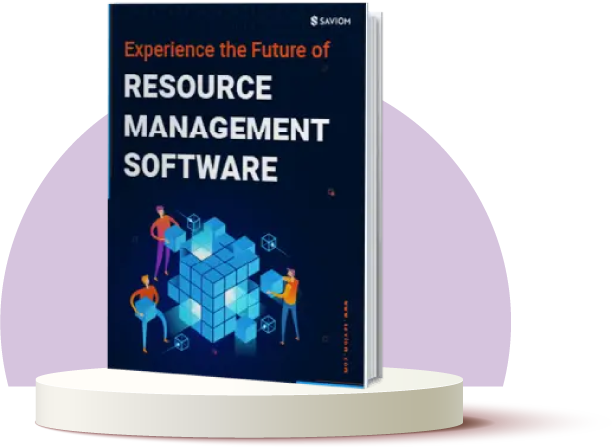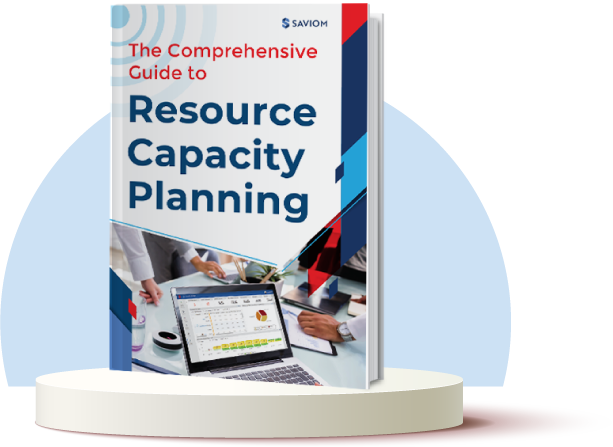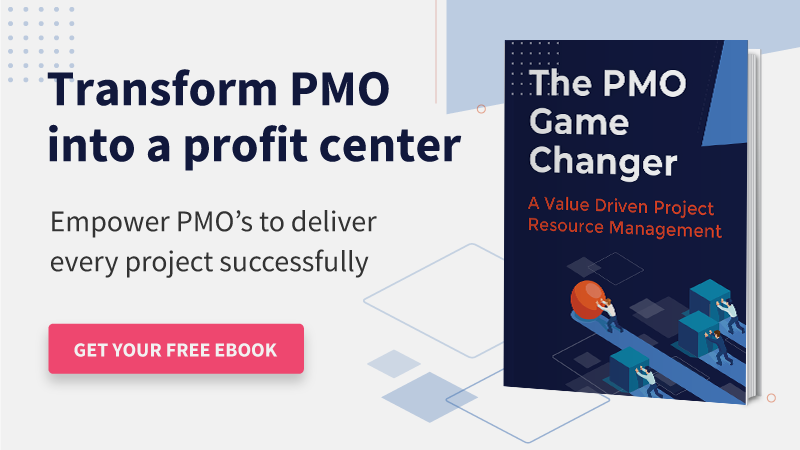“According to the State of Project Management report, 89% of organizations now have at least one PMO and 50% have more than one.”
These statistics point to the role of a PMO as a center of excellence that helps organizations achieve their strategic goals and consistently provide high-quality deliverables to their stakeholders.
A modern PMO is no longer limited to the administrative functions of setting standards and generating management reports. It plays a critical role in improving operational efficiency, optimizing resource utilization, and facilitating data-driven decision-making for better project outcomes.
In other words, PMO duties have evolved rapidly to meet the changing needs of project-based organizations, transforming it into a value center that contributes directly to business profitability.
In this blog post, we will explore the significant business benefits of a PMO and how it can contribute to the long-term success of an organization.
But first, let’s understand what a PMO is and how does it add value.
What is a PMO?
A project management office (PMO) is an entity, group, or department that prioritizes projects and programs based on business goals and ensures the productive utilization of resources.
A value-centric PMO can contribute significantly to the success of the projects, efficient utilization of resources, and help a business achieve strategic objectives. It can also help in overcoming the challenges of market volatility.
Having learned the PMO definition, now let’s understand the benefits of a PMO.
What can a PMO do to add value to the organization?
The project management office acts as a central platform for project management within an organization, providing guidance, support, and governance to ensure that projects are executed efficiently and aligned with organizational goals. Below listed are some of the benefits of a PMO and how it can add value to the companies:
Assessing the organization’s value streams
The PMO needs to understand the value the organization provides to customers and stakeholders. For this, firms must list their value streams at the program and portfolio level and prioritize them as necessary. Additionally, organizations must assess the resources required to deliver the value. This will enable the managers to concentrate on projects and programs that add value to the organization.
Aligning projects with the organization’s future goals
Value-driven project management office (PMO) must be aware of the organization’s mission, vision, and strategic objectives. For this, the PMOs must constantly communicate with the firm’s executives to assess which value streams are most important for achieving the organization’s goals. Based on this, PMOs can align the project portfolio with the strategic objectives. This alignment will help businesses achieve desired outcomes and deliver value to the organization.
Listening to customer requirements
To deliver continuous value, organizations must understand users’ needs. This will enable them to improve the quality of products/services and achieve their goals, which is essential to the business’s success. To accomplish this, PMOs can act as a channel for companies to assess customer expectations, prioritize the organization’s portfolio, and develop solutions to enhance the customer experience.
Optimizing the resources
PMOs play a vital role in optimizing resource allocation across projects. By centralizing resource management, PMOs can identify resource constraints, prevent overallocation
or underutilization, and ensure that resources are allocated based on project priorities. This maximizes the efficient and effective use of resources and reduces conflicts.
Managing project-related risks
A value-centric project management office establishes robust risk management processes to identify, assess, and mitigate risks across projects. By proactively addressing risks, PMOs help minimize the impact of potential threats and capitalize on opportunities. Effective risk management improves project success rates, protects organizational assets, and enhances decision-making capabilities.
Portfolio management
Project Management Office (PMO) oversees the organization’s project portfolio and provides strategic oversight. They evaluate proposals and prioritize projects based on strategic alignment and resource availability, ensuring optimal resource allocation across the portfolio. This enables organizations to make informed decisions about project investments and optimize their portfolio for maximum value.
Read more: What is the Strategic Alignment of Portfolio, and Why is it Important?
Knowledge management and continuous improvement
Well-established PMO practices a culture of learning and continuous improvement. They help organizations capture lessons learned from completed or existing projects and distribute best practices. By sharing knowledge, PMOs enable project teams to leverage past experiences, avoid pitfalls, and improve project execution.
By implementing these methods, PMOs add value to organizations. Now, let’s delve into the advantages of project management office to the organization.
What are the Benefits of a PMO?
The benefits of a PMO can differ from business to business, depending upon the type of industry, size, and circumstances. However, the following are a few common advantages of project management office in modern business.
Enables enterprise-wide visibility
One of the many benefits of a PMO can replace silos of solutions with a single centralized system. It can break the geographical and organizational boundaries across the matrixed structure and bring higher benefits. A consolidated view can help
firms prioritize high-value projects and guarantee higher success rates. Furthermore, this can help a business in:
- Achieving a single source of truth for all stakeholders.
- Gaining a unified view of project life cycles across different teams.
- Creating the right level of data visibility as per the role of the person.
- Identifying the right resource for the right project at the right time.
Implements best industry practices
The responsibilities of modern PMO go beyond setting up standardized guidelines and processes for project teams. They are also in charge of implementing industry best practices to improve governance, optimize project performance, and effectively counter common challenges such as budget/schedule overruns. This will enable organizations to:
- Complete the projects within stipulated time and budget, increasing stakeholders’ confidence and trust.
- Streamline project execution, reduce redundancies, and minimize rework.
- Identify and mitigate risks more proactively.
- Supports strategic alignment and promotes organizational learning.
Read more: 5 Best Practices to Resolve Resource-Centric Challenges in Global Project Delivery
Aligns projects with business objectives
A critical responsibility of a value driven PMO is to build program and portfolio frameworks and set up a project approval process based on the business’s tactical and strategic objectives. This helps organizations in:
- Improving ROI and profitability by choosing projects of the highest strategic value and importance.
- Optimally allocating resources to high-priority projects, minimizing the risk of workforce shortages.
- Implementing adaptive resource planning to meet changing project priorities
- Adapting quickly to volatile market conditions and emerging business opportunities.
Reduces project resource cost
A value-driven PMO can help a business reduce project resource costs with the help of a modern resource management solution. It provides them with the necessary tools to ensure optimal usage of the workforce. These are some of the direct benefits: ·
- Helps managers facilitate competent resource allocation based on skills and cost rates with enterprise scheduling.
- Enables the allocation of cost-effective global resources from any part of the world by providing 360-degree visibility into the talent pool.
- Minimizes reactive planning and last-minute hiring using an advanced capacity planning facility. · Avoid wasteful hiring/firing costs by forecasting project vacancies, people on the bench, and hot skills.
Read more: 5 Ways to Reduce Project Management Costs
Improves billable or strategic resource utilization
The efficient utilization of enterprise resources is one of the critical components in the profitability and sustainability of a business. A value-driven PMO can contribute to increasing billable and strategic resource utilization by helping your business:
- Forecast future billable and strategic resource utilization across all projects.
- Mobilize resources from non-billable work to billable or strategic work.
- Proactively market and sell excess capacity to improve productive utilization.
- Impart relevant training to upskill and prepare resources for future projects.
Improves project team accountability
One of the vital benefits of PMO is that it provides an outsider’s perspective on high-level project performance parameters, i.e., progress, deadlines, finances, ROI, benefits, strategic alignment, etc. This overview allows PMO to take necessary action to improve project team accountability. They do so by:
- Establishing clear roles and responsibilities for team members for seamless collaboration and smooth workflow.
- Providing autonomy and a sense of ownership to individual stakeholders to ensure project success.
- Defining project performance metrics and reporting requirements that measure progress, quality, and adherence to project objectives.
- Encouraging teams to proactively identify risks/issues, develop mitigation strategies, and resolve them on time to maintain project schedules.
Read more: A Project Manager’s Guide to Effectively Manage a Hybrid Team
Improves business decision-making
A PMO forecasts and tracks important KPIs to effectively manage projects, programs, and portfolios. They can leverage real-time business intelligence reports to get insights into these critical parameters and intervene whenever there is any deviation, thereby improving the decision-making process. In addition, the PMO:
- Assists in project prioritization and portfolio management, helping the management to identify and select the most strategically aligned projects
- Provides comprehensive risk assessments, mitigation strategies, and scenario analysis that enables critical stakeholders to make informed decisions
- Facilitates effective communication channels for stakeholder engagement, ensuring access to diverse perspectives and relevant input.
Read more: 5 Benefits of Using Business Intelligence in Resource Management
Optimizes project workforce
Resource capacity planning is a critical part of a value-driven project management office (PMO). It helps a business identify the short and long-term excess or deficit of resources.
Accordingly, a PMO can plan and build an optimized workforce with the right mix of permanent employees and contingent resources.
With effective capacity planning, firms can:
- Assign the right resources to suitable projects, considering factors, such as workforce skills, availability, cost, workload, etc.
- Balance the distribution of workload, preventing under/overallocation and ensuring that projects are adequately staffed
- Improve forecasting and budgeting by taking into account resource capacity, availability, cost rate, expertise level, location, and other key factors.
Read more: What is Resource Capacity Planning? An Ultimate Guide for Every Project Manager
Shares project knowledge
A value-driven PMO can set up the framework to preserve project knowledge, such as project plans, lessons learned reports, reviews, and templates, into a centralized repository. It can be accessed and leveraged in the future to improve teamwork, coordination, and synergy across projects and departments. Moreover, sharing knowledge can help:
- Team members learn from past mistakes and avoid repeating them in future projects, leading to increased efficiency and reduced rework.
- Enables new recruits or those transitioning to different projects to access valuable insights and expertise from experienced colleagues.
- Fosters collaboration and encourages project members to work together and leverage each other’s expertise efficiently.
- Encourages the exchange of diverse perspectives and insights, leading to the development of new approaches, improved processes, and innovative solutions to project challenges.
Improves communication and productivity
The complexity of project execution has multiplied many folds due to the emergence of matrix organization structure and remote working models. So, PMO has started providing a collaborative framework for these teams to improve communication and avoid chaos. This has a direct impact on the improvement of productivity. Additionally, better communication helps:
- Team members effectively convey their ideas, goals, and bottlenecks, ensuring that everyone is on the same page.
- Project teams resolve internal conflicts swiftly and maintain optimal productivity levels.
- Quickly address risks and issues, lowering their impact on project timelines and budget.
- Ensure timely completion of tasks and milestones, leading to successful execution and delivery of projects.
- Now that we understand some essential PMO benefits, let’s learn about the must-have functionalities of robust PMO software.
Software functionalities for a value-driven PMO
As discussed in the previous section, a value-driven project management office carries many responsibilities for modern business. So, having a tool with all the advanced functionalities is critical for a PMO to deliver its responsibilities.
Project management
PMO software should have functionalities that empower organizations to manage the entire project lifecycle efficiently, from planning to execution. It should have project scheduling capabilities that enable managers to create WBS, track milestones, monitor risks/issues, maintain project documentation, etc.
Portfolio management
Having a bird’s eye view of various projects run in the business is critical. So, the software should be equipped with portfolio management functionalities that help firms track the project KPIs in real-time and provide early warnings in case of deviation.
Resource planning & allocation
PMO software must have a centralized resource planning functionality. This helps the organization effortlessly identify the right professionals in a large pool of resources and allocate them to suitable projects at the right time and cost.
Resource capacity planning
This is one of the most critical functionalities of robust project management software. This would help firms forecast shortfalls or excesses of resources so that the right remedial treatments can be applied to maintain an optimized workforce.
Work management
In a matrix organization structure, tracking work allocations of a geographically dispersed project team can be a daunting process. So, project management software must offer real-time visibility into the work schedules of resources that can help managers monitor their utilization and intervene when there is an imbalance.
Team collaboration
Team collaboration is part and parcel of seamless communication for distributed teams. So, a robust solution must provide a responsive collaboration platform that allows project teams to coordinate their efforts, stay updated on task progress, and share vital information.
These are some essential functionalities a software must possess to enable the PMO to deliver their responsibilities smoothly and effectively.
Conclusion
PMOs act as catalysts for successful project execution, ultimately contributing to the overall success and competitiveness of the organization. Embracing a value-centric approach to project management empowers organizations to achieve their goals, drive innovation, and maintain a competitive edge in today’s dynamic business landscape. A value-driven project resource management software can help your organization minimize project resource costs and improve business profitability and sustainability.
Glossary
Read more: Glossary of Resource Workforce Planning, Scheduling and Management
The SAVIOM Solution
SAVIOM provides a state-of-the-art tool for supporting value-driven PMO. It has more than 20 years of experience working with highly valued global companies around the world. SAVIOM also provides tools for enterprise resource management, professional service automation, and workforce planning software. So, SAVIOM can help your business establish an efficient system geared toward your business challenges.













